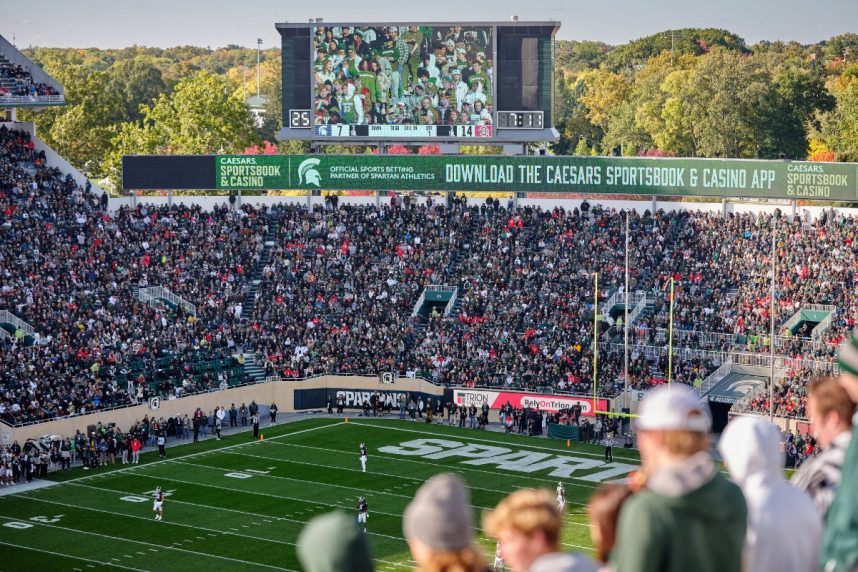Published on: October 9, 2024, 12:53h.
Last updated on: October 9, 2024, 12:53h.
A study commissioned by the National Collegiate Athletic Association (NCAA) set to be released tomorrow reveals that college basketball players who participated in this year’s March Madness men’s and women’s tournaments were primarily targeted by irate sports bettors.

Last December, the NCAA hired Signify Group, a data-centric research firm, to assess the impact of the proliferation of sports gambling on student-athletes. Signify’s AI-driven Threat Matrix evaluated and scrutinized instances of collegiate athletes facing online harassment via social media.
The Signify report set for publication on Thursday outlines the 2023-2024 NCAA championships and incidents of harassment, encompassing the 2024 College Football Playoff, 2024 March Madness tournaments, College World Series championships, and volleyball and gymnastics titles.
Throughout these sporting events, players encountered 743 abusive and/or threatening social media messages related to sports betting. Nearly three out of four (73%) occurred during the March Madness basketball games.
As the popularity of sports betting increased, so did the frequency of sports betting-related abuse,” Clint Hangebrauck, the NCAA’s managing director of enterprise risk, told ESPN.
Threat Matrix analyzed social media profiles of over 3,000 student-athletes, around 500 coaches, 200 referees, and 165 collegiate teams.
The investigation revealed that enraged sports bettors dissatisfied with the team or player(s) performance they bet on engaged in “problematic and intrusive communication” involving sexual abuse, racism, and homophobic remarks. One example cited by the NCAA ahead of the Signify report read:
Yo, no big deal but if you don’t get 22 points and 12 boards everyone you know and love will be dead.”
Sports Betting, NIL Expansion
The United States Supreme Court in May 2018 overturned the Professional and Amateur Sports Protection Act (PASPA) that had restricted single-game wagering to Nevada. This landmark ruling granted states the authority to determine their regulations on sports gambling. Presently, 38 states and Washington, D.C. have legalized sports betting.
The growth of sports betting coincided with NCAA players gaining the opportunity to profit financially from their involvement in college sports through name, image, and likeness (NIL) agreements. The NIL opportunity arose after another Supreme Court ruling — the NCAA v. Alston in 2021 — found that the governing body of college sports was benefiting not only from organizing and overseeing collegiate sports but also from the names and likenesses of student-athletes.
This groundbreaking ruling paved the way for student-athletes to receive compensation from NIL programs. Star athletes in college sports have since secured lucrative sponsorship deals.
Colorado Buffaloes quarterback Shedeur Sanders’ NIL agreements are valued at $5.6 million, LSU gymnast Livvy Dunne has $4 million in sponsorships, and Colorado Buffaloes wide receiver Travis Hunter has over $3 million in endorsements.
No Longer Amateurs?
The NCAA has been actively working to protect athletes from online harassment. NCAA President Charlie Baker has made it a priority to urge states with regulated sports betting to prohibit player prop bets involving college athletes.
Player prop bets involve wagers on a specific athlete’s performance. For instance, how many yards will Colorado’s Sanders throw in his next game?
Baker argues that such bets contribute to harassment. However, some argue that since college athletes are no longer strictly amateurs who cannot earn from their play and image, such bans are unnecessary.


